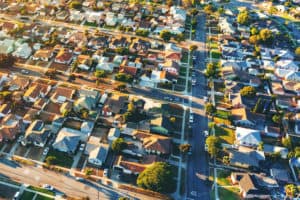If you are a homeowner in a community with a homeowners association, you may have come across the term “Reserve Study” at board meetings or in reports. A Special Assessment could have been levied to finance reserves, and you may wonder if that assessment is legally valid, necessary, and/or reasonable.
This article will better understand what a Reserve Study is, its processes, and what information it provides.
What is a Reserve Study?
A reserve study is an important tool for homeowners and property managers to understand the long-term financial implications of owning, operating, and maintaining a property. It is a detailed analysis of the costs associated with maintaining, replacing, and repairing the major components of a property over time. The goal of a reserve study is to help ensure that enough funds are set aside to cover the costs of these major components.
What’s the Process?
1. Inspection
A reserve study typically begins with an inspection of the property. The property manager or inspector will assess the condition of the building, its components, and the materials used in its construction. Based on this assessment, the inspector will estimate the life expectancy of the major components, such as HVAC systems, roofing, windows, and siding. This information is then used to develop a budget for each major component’s expected repair, replacement, and maintenance costs.
2. Reserve Contribution
The next step in the reserve study is determining how much money should be set aside each year for future repairs and replacements. This is based on the estimated cost of the repairs and replacements, as well as the expected life expectancy of the components.
The amount of money that should be set aside each year is known as the “reserve contribution.” It is important to note that the reserve contribution differs from the annual cost of maintaining the components. Instead, it is long-term savings account to pay for future repairs and replacements.
3. Outlined Report
Finally, the reserve study will provide a detailed report outlining the estimated costs of repairs and replacements for each major component and the necessary reserve contribution. This report can be used to make informed decisions about managing the property and its finances.
What Information Do Reserve Studies Provide?
To ensure that the HOA and its members are aware of the financial obligations they may have to meet, California Civil Codes §5550 and §5300 require that certain information be disclosed in Reserve Studies and Annual Budgets.
The information required in Reserve Studies and Annual Budgets includes the following:
• A detailed description of the common area components of the HOA that are subject to reserves.
• The estimated current replacement cost for each component.
• The estimated future replacement cost for each component.
• The estimated remaining useful life of each component.
• The estimated annual contribution needed to fund the reserves adequately.
• The estimated reserve balance at the end of each year.
• The estimated total reserve funding needed over the entire useful life of each component.
• A list of funding sources, including reserves, special assessments, and other sources.
By providing this information, HOAs can make informed decisions about their finances and ensure that they have enough money to meet their future obligations. Additionally, this information gives homeowners a better understanding of the financial health of their HOA and allows them to plan accordingly.
Conclusion
Reserve study is essential for associations to maintain fiscal responsibility and ensure adequate funds are available to cover unexpected expenses. By understanding the reserve study, associations can make sound financial decisions, plan long-term capital improvements, and ensure that members can handle unexpected assessments.
Are you interested in a reserve study? California Builder Services can help. We are a single-source consulting firm specializing in DRE public reports processing, HOA budgeting, and reserve studies. Get in touch with us today to learn more!







